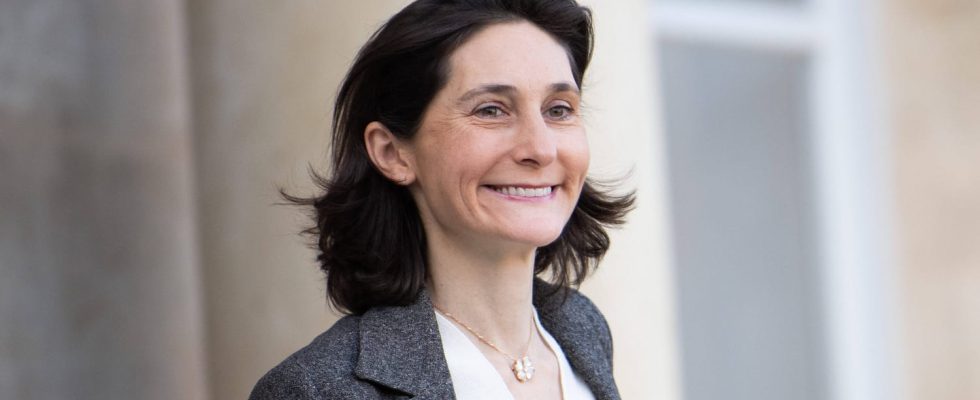Amélie Oudéa-Castera was chosen to succeed Gabriel Attal at the Ministry of National Education. The minister is therefore entrusted with two portfolios, since she remains in charge of the Ministry of Sports.
National Education has a new minister: Amélie Oudéa-Castera. It would be more accurate to say that the Ministry of National Education comes under the leadership of the Minister of Sports, because the senior civil servant and former professional tennis player was already a member of the government under Elisabeth Borne. Amélie Oudéa-Castera therefore inherits two leading portfolios on which major projects are planned and the decision of the Elysée and Matignon to bring together these two areas could be poorly received, particularly by education professionals.
The priority subject of school and the Olympic Games project head-on
While school is presented as one of the priorities of Emmanuel Macron’s five-year term, even more so for the months to come with the desire to “rearm the country” by continuing efforts in the field of education, the choice not appointing a minister solely dedicated to this area is surprising. It is all the more surprising that the Ministry of National Education is not coupled with a small ministry but with that in charge of Sports, which is in charge of the Olympic Games which will take place in the summer of 2024 in France. . This project prepared for months by Minister Amélie Oudéa-Castera made it impossible to replace the Minister of Sports, but it will require a lot of attention, as much as National Education. Will it be possible for the minister to lead both fronts at the same time?
National Education led by Macron and Attal?
If the appointment of Amélie Oudéa-Castera to the Ministry of Education, in parallel with her retention at the Ministry of Sports, was considered possible and adopted by the Elysée and Matignon it is perhaps because the role of the Minister of Education could limit himself to the execution of decisions taken at a higher level.
The President of the Republic has made school one of his “reserved areas” and intends to closely follow the actions of the new minister, even to guide them remotely. And to this view should be added that of the Prime Minister who declared “to take with [lui] in Matignon the cause of the school” after having worked for five months at the Ministry of Education. Amélie Oudéa-Castera should therefore not have significant room for maneuver in the ministry and be supported behind the scenes by her predecessor or the advice emanating from of the Elysée.
Other unconvincing hypotheses
If the name of Amélie Oudéa-Castera was mentioned, other rumors had the upper hand: those considering the appointment of Aurore Bergé (Minister of Solidarity and Families) or Stanislas Guérini (Minister of the Civil Service). But neither of these two possibilities aroused great enthusiasm, both among the political class and among Internet users kept informed of the rumors.
